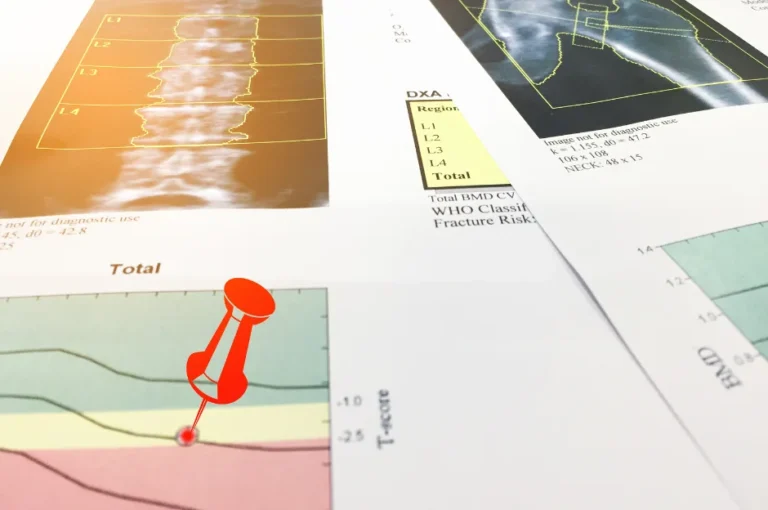Getting lost in the shuffle of diet trends and fads is easy. You’ve probably heard about Paleo, intermittent fasting, or other diets. But here’s the thing: I’m not in favor of one of those diets. I’m for all of them and none of them at the same time.
Why? Because I’m all about personalization, and you should be, too.
Nutrition isn’t a one-size-fits-all deal. It’s as unique as you are. Every day, new research tells us that personalized nutrition is the key to unlocking your full potential while achieving your goals.
So, is there a single “right way” to eat for everyone? Not really.
Our diverse backgrounds, unique DNA, changing environments, and personal preferences make it impossible to prescribe a one-size-fits-all diet. Many people need help with body composition and health while following generic advice.
Personal nutrition isn’t just about jumping on the latest diet bandwagon. It’s about considering a whole bunch of factors:
- Ethnic Origin: Your heritage can impact how your body processes different foods.
- DNA: Your genes affect how your body responds to specific nutrients.
- Current Environment: Where you live affects the availability of certain foods and your lifestyle.
- Time of Year: Seasonal variations can influence your nutritional needs.
- Location: Urban or rural living can impact food choices and access.
- Stress Levels: Stress affects your appetite and food choices.
- Toxicity Status: Environmental toxins can influence your health.
- Gut Health: The diversity and health of your microbiome can determine the foods you need to eat or avoid.
- Lifestyle: Your daily routine and activity level matter.
- Likes/Dislikes: Your taste preferences shape your diet.
- Personal Preferences: What you enjoy eating matters.
So, if someone asks you about your “eating type,” whether it’s Paleo, vegan, or anything else, remember that while eating is a tribal activity and we want to belong to something, don’t let that blind you to the bigger picture: personalization.
Popular diets often fall short because they don’t cater to individual needs.
Most of them simply take into account weight loss: they “work” somewhat because they help you achieve a calorie deficit or surplus. It’s simple: eat more than you need, gain weight, eat less, lose weight. There is no magic, just calories in versus calories out.
Cutting out certain foods, like processed ones in a Paleo diet, often leads to reduced hunger and fewer calories consumed. But remember, it all boils down to calories.
Some diets also focus on improving food quality. The paleo diet and Mediterranean diet emphasize nutrient-dense whole foods. This helps with weight control and leaves you feeling full, reduces overeating, and packs in essential nutrients.
Don’t forget about micronutrients – vitamins and minerals. Many modern diets emphasize whole, single-ingredient foods, ensuring you get enough fruits and veggies, the primary sources of these vital micronutrients.
Nutrient timing and meal frequency also play a role in modern nutrition. For instance, intermittent fasting guides you on when to eat to optimize your diet’s efficacy. The post-workout “anabolic window” is another example. It’s when your body is primed to absorb nutrients like carbohydrates and protein.
But here’s the kicker: only some of these strategies work if you manage your overall calorie intake. Even if you cut carbs but overeat calories, your body can still store fat.
Supplements can also be part of modern nutrition but tread carefully. Check for quality and safety. Ensure they meet recommended standards and comply with organizations like WADA (for athletes) or the FDA (for everyday adults).
Now, let’s break it down into a simple pyramid:
- Level 1: Manipulating Body Composition: Most modern diets achieve this, helping you control weight.
- Level 2-5: Extra Mile: Some diets go beyond body composition and enhance overall health, performance, and micronutrient intake. The more levels you hit, the better your results.
So, when you see success stories from different diets, know that they manipulate one or more of these categories in their own way. When choosing the right nutrition plan, think beyond just looks. Consider how it affects your energy levels, well-being, sleep, and relationship with food. A holistic approach brings better, long-term results.
Improved body composition is a common goal but remember health and performance. Your health directly impacts your appearance; your nutrition should help you perform at your best in every aspect of life.
Continually monitor these three factors: body composition, health, and performance. If any of them drop, your current nutrition plan might not fit.
So, here’s the takeaway: The perfect diet is about something other than following a trend. It’s about matching the correct nutritional protocols to your unique needs. Find what works for you, and you’ll unlock the full potential of your body and health.
The Role of Nutrition in Mitochondrial Health and Pain Reduction
One critical aspect of personalized nutrition that often goes overlooked is its impact on mitochondrial health. Mitochondria, the powerhouses of our cells, are crucial for energy production. When our mitochondria function optimally, we have more energy, better cellular repair, and a stronger defense against diseases and chronic pain.
Poor nutrition can lead to mitochondrial dysfunction, resulting in increased inflammation and oxidative stress. This can manifest as stubborn pain, fatigue, and difficulty in losing weight. By improving your diet, you enhance mitochondrial function, which can significantly reduce pain and make weight loss more manageable and sustainable.
Introducing Our Groundbreaking 90-Day Nutrition Program
At Highlands Chiropractic & Wellness, we recognize that personalized nutrition is key to optimizing mitochondrial health and reducing chronic pain. Our 90-day individualized nutrition program is designed to help you address the root causes of your pain and improve your overall well-being.
Our Program Offers:
- Discover the Root Cause: We’ll work together to identify dietary and lifestyle factors contributing to your pain and mitochondrial dysfunction.
- Personalized Plan Development: Based on your unique needs, we’ll create a nutrition plan that aims to reduce inflammation, support mitochondrial health, and enhance your well-being.
- Weekly Education and Accountability: Receive ongoing support with weekly check-ins, educational resources, and accountability to keep you on track.
This program is designed not just to reduce pain but also to empower you to take control of your health through informed dietary choices. By the end of the 90 days, you’ll experience less pain, improved energy levels, better health, and a greater overall sense of well-being.
Ready to start your journey to a healthier, pain-free life? Contact us today to learn more about our 90-day nutrition program and take the first step towards a better you.






